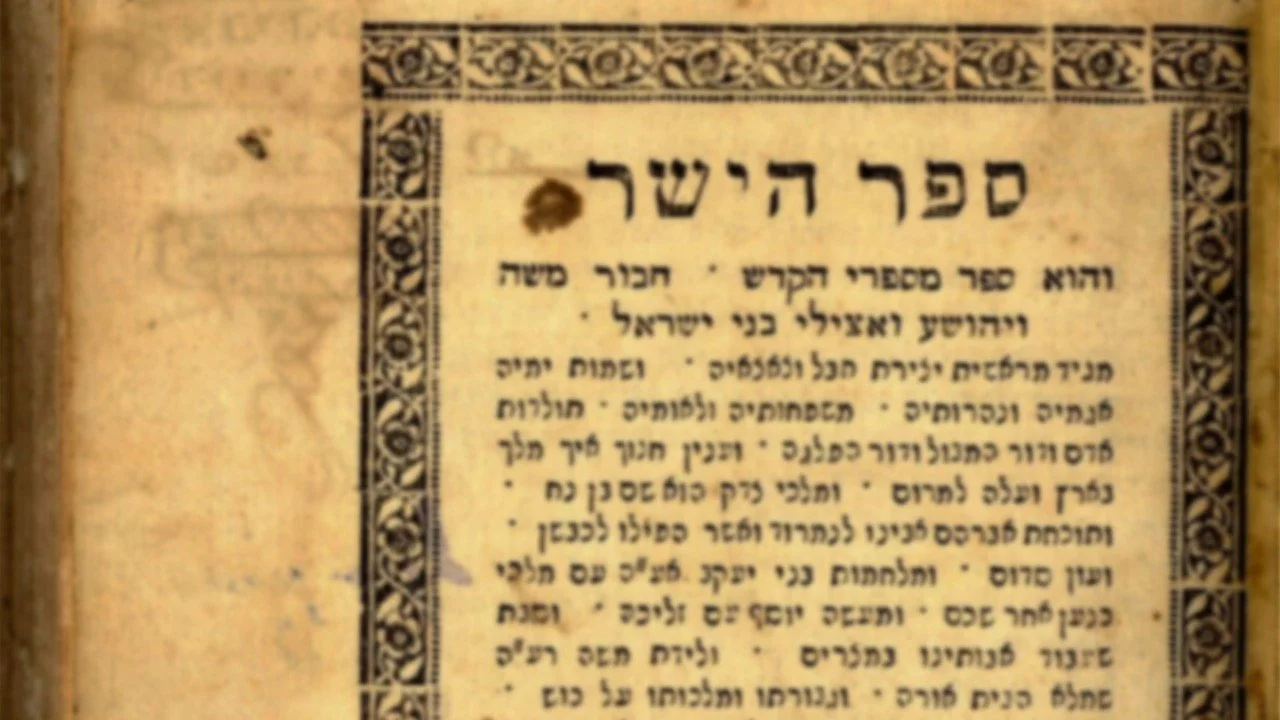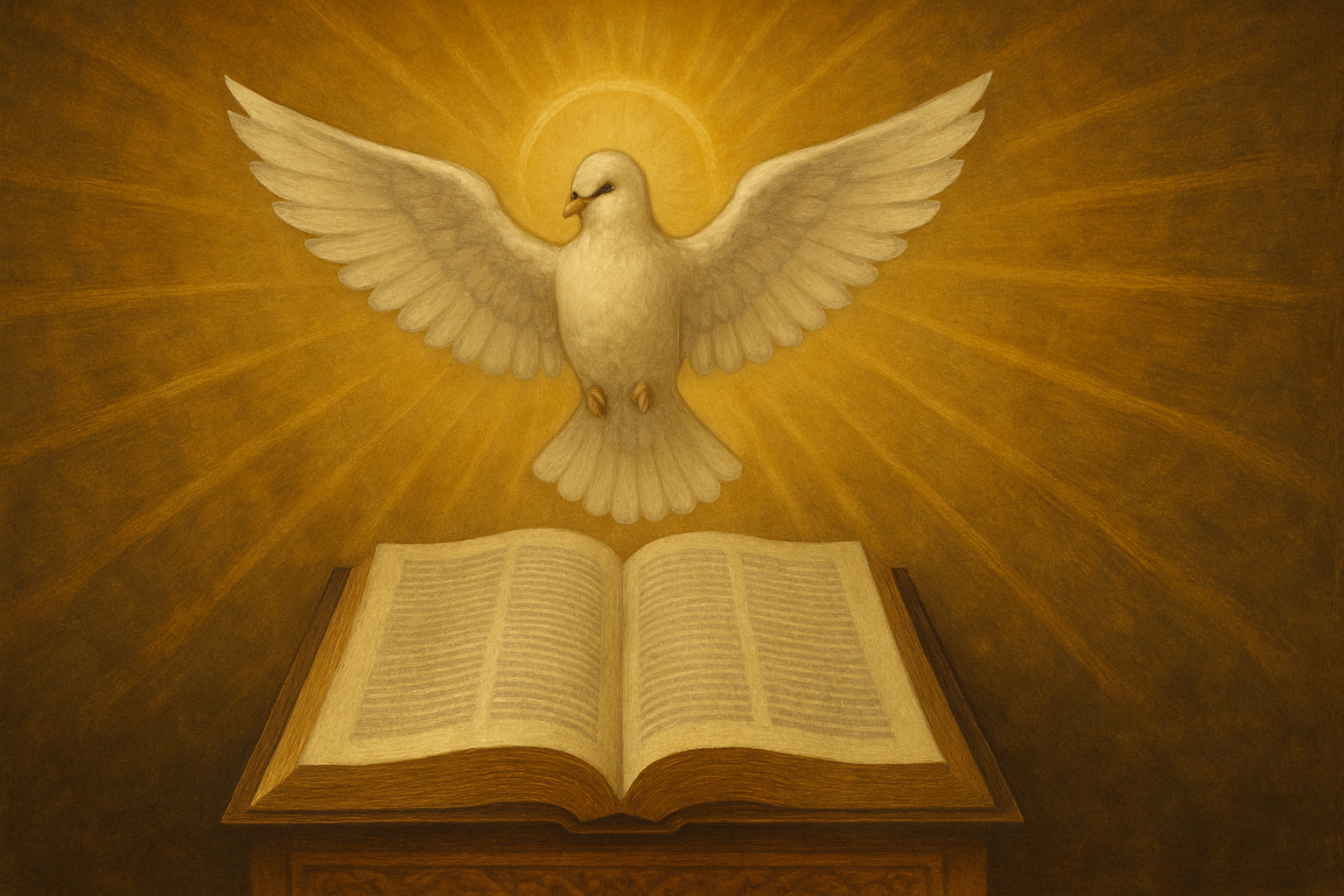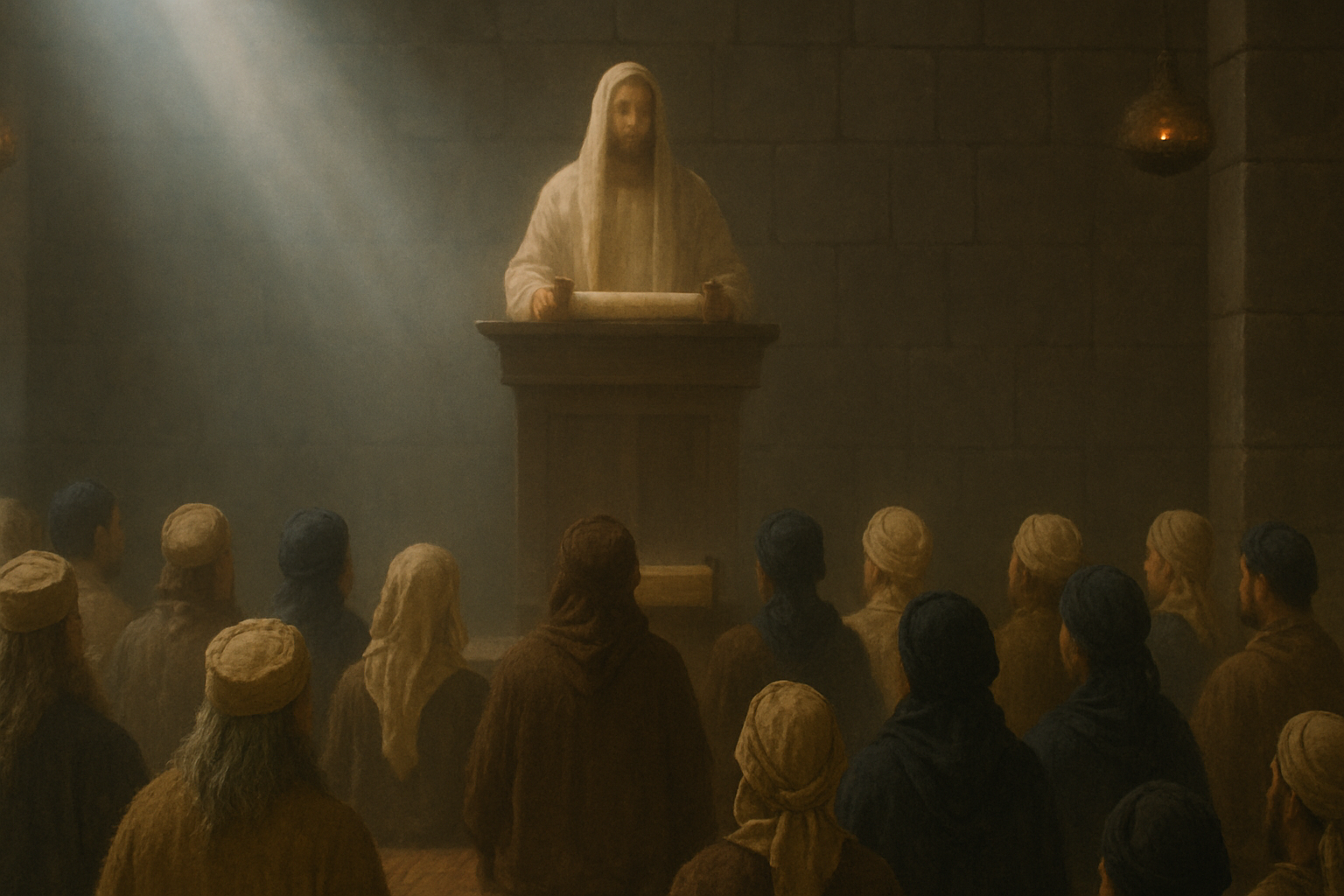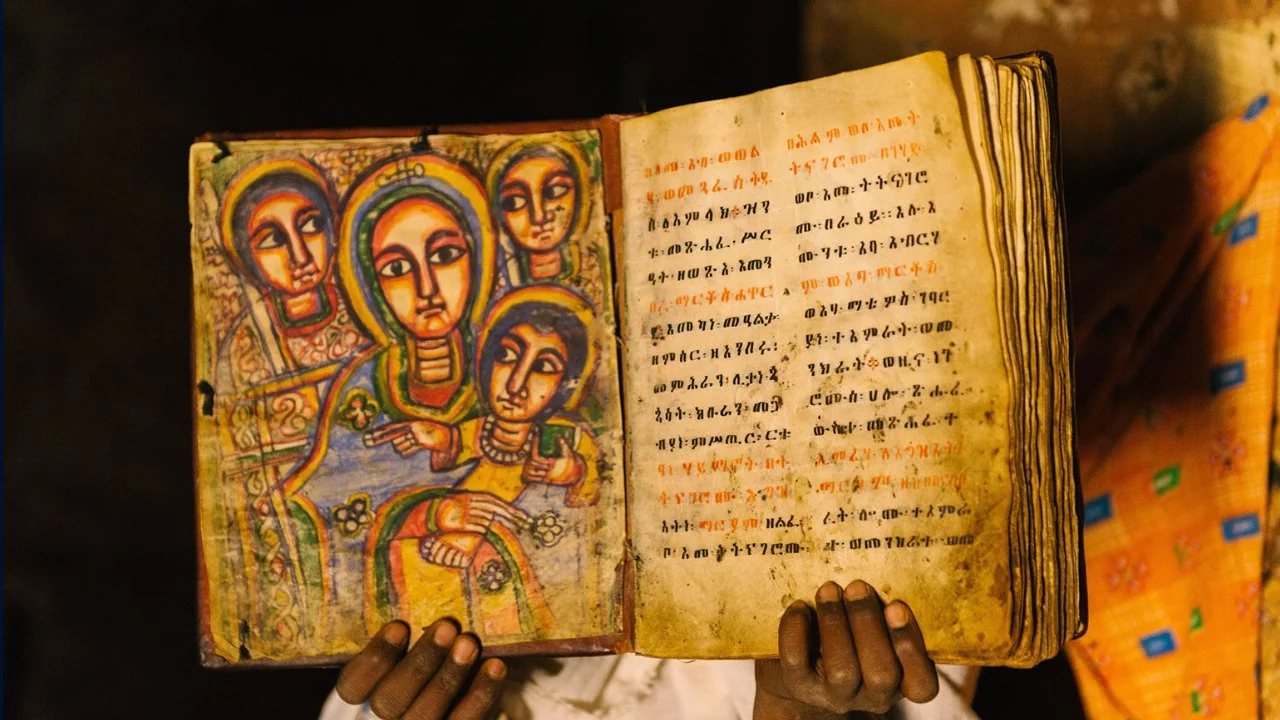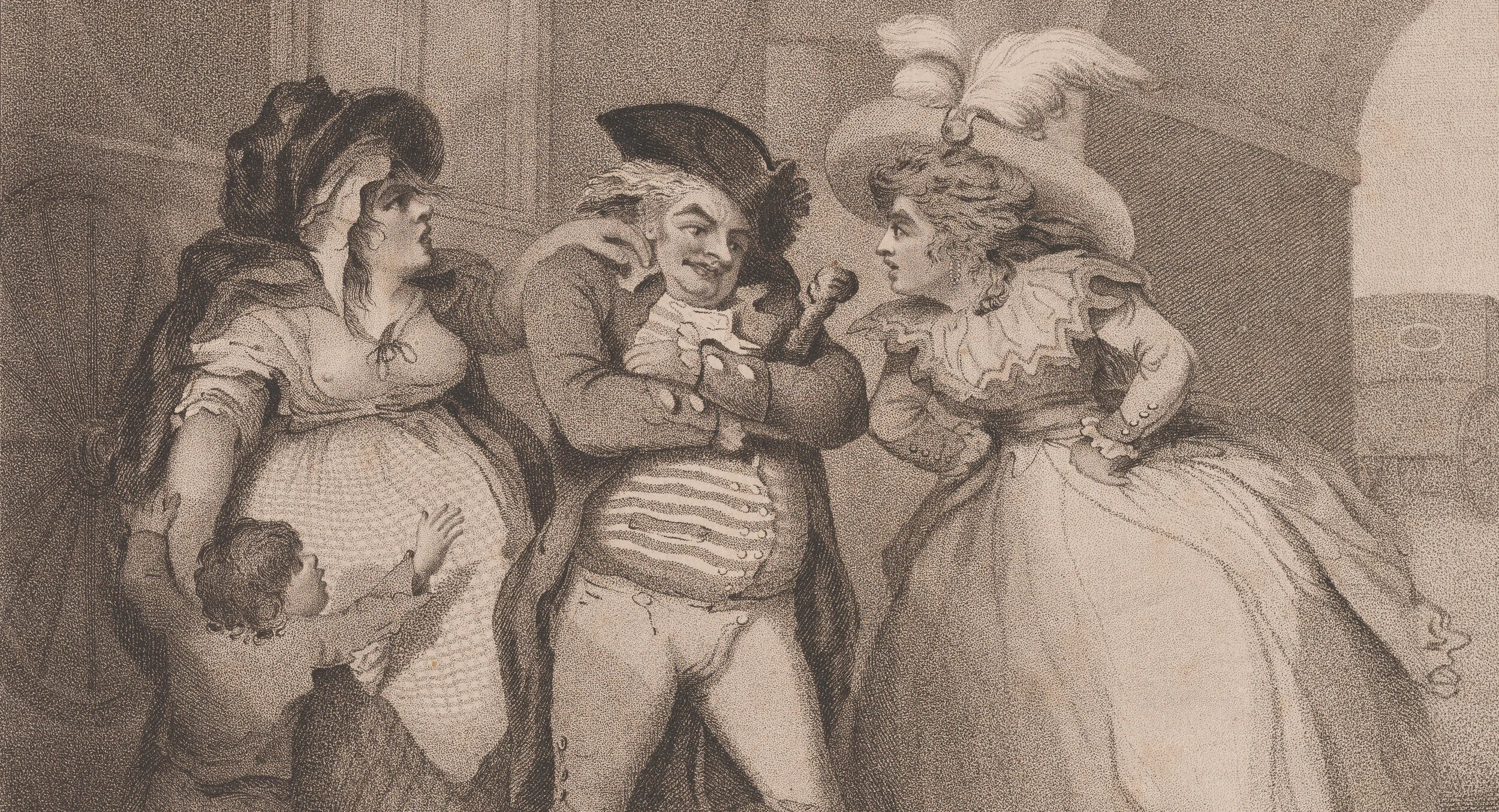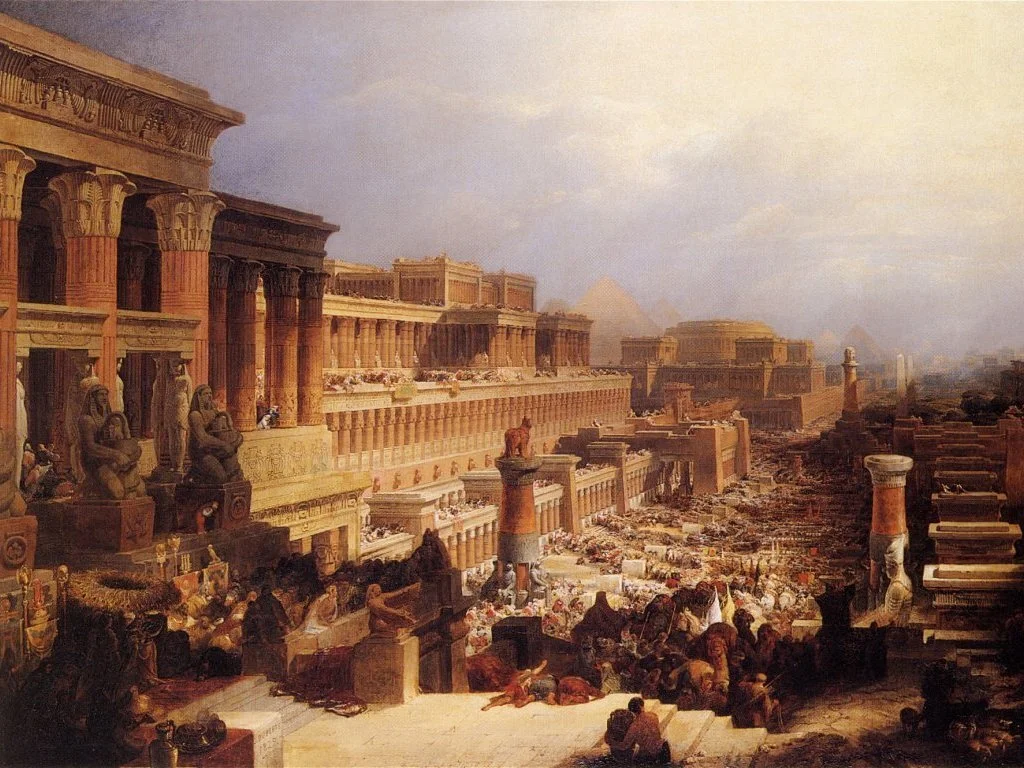Author: David Wilber
Is the Messiah God? The first chapter of Hebrews presents compelling evidence that he is. In this chapter, the author highlights the Son’s role as the creator and sustainer of the universe, emphasizes the Son’s divine essence, proclaims that the Son is worthy of the worship that belongs only to God, and explicitly identifies the Son as “God” and “Lord/YHWH.” In order to demonstrate each of these points, this article conducts a detailed exegesis of Hebrews 1 and answers objections from unitarians.
The Son is the Agent of Creation
The author of Hebrews begins his letter by announcing that God has appointed his Son as “the heir of all things,” emphasizing the Son’s role as the long-awaited Davidic king.[1] However, the author goes far beyond merely affirming the Son’s role as the Davidic king; he also proclaims that God created the world (τοὺς αἰῶνας) through the Son (Heb. 1:2). The term αἰῶνας (“world”) can mean the physical world that God has created,[2] and according to Thomas Schreiner, “it certainly has that meaning here in Hebrews.”[3] Thus, similar to other New Testament passages (John 1:3; 1 Cor. 8:6; Col. 1:16), Hebrews 1:2 identifies the Son as the agent of creation.[4] A few verses later, the author reinforces this point by attributing YHWH’s works of creation in the beginning to the Son (cf. Heb 1:8), quoting the Psalms: “You, Lord, laid the foundation of the earth in the beginning, and the heavens are the work of your hands” (Heb. 1:10; cf. Psa. 102:25). Remarkably, the author of Hebrews has no reservations about applying this quotation from the Psalms to the Son even though, in its original context, the passage ascribes the works of creation to YHWH (Psa. 102:1, 12).[5]
The Son’s involvement in creating the world is significant because this role distinguishes him from the creation. Indeed, contrary to the claims of Arians and unitarians,[6] the Son himself is not a created being; rather, he is the very person through whom God brought all creation into existence (cf. Col. 1:15-17). The Father and Son collaborated harmoniously to bring forth creation, a divine act that Scripture elsewhere attributes to YHWH alone (e.g., Isa. 44:24). Consequently, by virtue of his involvement in the creation, the Son is included in the unique divine identity.[7] As Amy Peeler writes, “the author [of Hebrews] involves Jesus in one of the activities—creation—that defines God.”[8] Nevertheless, in Hebrews 1:2, the Son also remains distinct from the Father. In other words, he is with God and is God (cf. John 1:1). This scriptural realization had a profound impact on what came to be known as trinitarian theology.[9]
In contrast to the perspective articulated above, unitarian interpreters reject the notion that the Son was involved in the divine act of creation. For instance, unitarian theologian Kegan Chandler correctly notes that αἰῶνας, translated “world” in Hebrews 1:2, can have temporal connotations and thus be translated as “ages.”[10] In light of this fact, Chandler proposes that αἰῶνας refers not to God’s past creation of the world but rather to God’s ushering in of the new age or “world to come” through the Messiah (cf. Heb. 2:5). Chandler writes, “[W]e can assume that this is the time of ‘the world to come, about which we are speaking’ (Heb 2:5)…The Son is not then the original creator of our planet, but the one through whom God has established the new age after Christ’s resurrection, God’s new world order, his new system of things.”[11]
While it is possible to understand αἰῶνας in merely a temporal sense, in Hebrews 1:2, “It is more likely used…primarily in a spatial sense, of the spheres that comprise the universe.”[12] First, elsewhere in his letter, the author employs the same terms he uses in Hebrews 1:2 to describe the creation of the material cosmos.[13] The term αἰῶνας (“world”) appears again in Hebrews 11:3 in reference to the “universe” (αἰῶνας) that was “created by the word of God.” Moreover, the verb ποιέω (“created”) appears again in Hebrews 12:27 in reference to the “things that have been made”—that is, the earth and heavens (Heb. 12:26). In contrast, the author uses an entirely different word in Hebrews 2:5 when speaking of the “world [οἰκουμένη] to come,” the eschatological world/age. Second, this new world/age in Hebrews 2:5 is yet future, hence the participle μέλλουσαν (“to come”), while the creation of the world mentioned in Hebrews 1:2 pertains to a past event. Third, just a few verses later, the author explicitly attributes YHWH’s work of creation “in the beginning” to the Son (Heb. 1:10). Thus, it is entirely implausible that the author refers to the forthcoming “age to come” when speaking of the creation of the world in Hebrews 1:2. He is referring to the Genesis creation.
The Son is the Sustainer of the Universe
The author of Hebrews proclaims that the Son was involved in not only creating the universe but also, in some way, sustaining it. He writes that the Son “upholds the universe by the word of his power” (Heb. 1:3). The Greek term translated as “upholds” (φέρων) pertains to the Son’s continuous sustaining activity.[14] Other Jewish writers attributed the task of upholding the universe to God’s divine Wisdom or Word (Sirach 43:26; Wisdom of Solomon 7:24; 8:1; Philo, On Dreams 1.241; Migration of Abraham 6; De plantation 8-9).[15] Similar to Paul (cf. Col. 1:17), the author of Hebrews attributes this cosmic activity to the Son’s divine word.[16] Since the author of Hebrews recognizes the Son’s work of upholding the universe, an activity that Scripture elsewhere ascribes to God (Psa. 104:24-30; Acts 17:25, 28), the author therefore affirms the Son’s divine identity. As Richard Bauckham writes, “It belongs to the unique identity of God that he upholds all things and is not himself upheld.”[17]
Eric Chang, a unitarian theologian, has proposed an alternative interpretation of this phrase. He writes, “His sustaining of all things does not look back to the distant past or to preexistence or to the material creation, but to the power and authority that come with his exaltation to the highest place at God’s right hand.”[18] So, according to Chang, the Messiah’s work in sustaining the universe is not an activity he has been performing since the beginning of creation. Instead, Chang imagines this work as the Messiah’s exercise of his rulership over the universe, which began at his exaltation. As Chang writes, “With his exaltation comes the authority to rule as Yahweh’s plenipotentiary over His universe, to command ‘all things.’”[19]
However, it is more natural to understand the phrase “he upholds the universe by the word of his power” as pertaining to the Son’s activity from the beginning of creation. First, scholars have noted that the seven descriptions of the Son in Hebrews 1:2-4 form a “ring structure.”[20] This structure begins with announcing the Son’s exaltation, moves to describing his preexistent glory and role in creating and sustaining the universe, subsequently delves into his work of making purification for sins, and ultimately returns to his exaltation. The phrase in question is between the author’s description of the Son’s act of creating the world and his act of making purification for sins. This placement indicates that the Son’s work of sustaining the universe was occurring before his act of making purification for sins and his subsequent exaltation.
Photo © J. P. Meier, “Structure and Theology in Heb 1,1-14,” Biblica 66 (1985)
Second, as noted above, the description of the Messiah in this passage resembles expressions and terminology found in various Jewish texts discussing God’s Wisdom or Word. These texts depict God’s Wisdom/Word as existing with God in the beginning, functioning as God’s agent of creation, and sustaining all things.[21] According to Peeler, “The close and pervasive correspondence demands the conclusion that in his portrayal of Christ the author of Hebrews used imagery that other Jewish authors of his time employed for God’s Wisdom and God’s Word.”[22] The author’s original readers would undoubtedly have recognized these parallels and their implications. Like God’s Wisdom/Word, the Son existed prior to the material creation, assisted in bringing forth creation, and sustains creation.[23] Chang’s interpretation, which suggests that the Son’s role in sustaining the universe refers merely to the authority bestowed upon him to rule the universe following his exaltation, does not adequately account for the author’s use of this imagery.
Consequently, the phrase “he upholds the universe by the word of his power” is more accurately understood as referring to the Messiah’s work of sustaining the material universe, continuously occurring since the Genesis creation began. This cosmic activity strongly implies the Messiah’s deity. As Schreiner writes, “Only a divine being can sustain the created world, and thus the Son of Hebrews isn’t limited to his humanity.”[24]
The Son Shares the Father’s Divine Essence
The author of Hebrews goes beyond describing the Son’s divine actions; he also describes the Son’s divine person. According to the author, “He is the radiance of the glory of God and the exact imprint of his nature” (Heb. 1:3). The word translated as “radiance” (ἀπαύγασμα) is “ambiguous and may be understood either actively as ‘radiance’ or passively as ‘reflection.’”[25] In either case, in light of the subsequent clause describing the Son as “the exact imprint of [God’s] nature,”[26] the main point conveyed by this image is that the Son embodies God’s glory. As R. B. Jamieson writes, “If the first clause portrays Christ as merely the reflection of God’s glory rather than its active outflow, that reflection should be construed not in finite, creaturely terms, but as a perfect representation of God’s intrinsic, essential glory.”[27] Regarding the description of the Son being “the exact imprint” of God’s nature, Scott Mackie explains that the word translated as “imprint” (χαρακτὴρ) “commonly denotes the impression made upon a coin or seal.”[28] The Son is the exact imprint, or replica, of God’s “nature,” which is translated from the Greek ὑποστάσεως. In ancient medical texts, this Greek term was used “for a sediment that collects at the bottom of, and hence ‘stands under’ (ὑπό + ισταμαι), a solution.”[29] Hence, ὑποστάσεως “eventually came to refer to whatever underlies a particular phenomenon, whatever is its actuality or its most basic or fundamental reality or ‘essence.’”[30] In other words, the Son perfectly represents the Father’s divine identity or essence. Peeler puts it well: “The divine Son replicates the central core of who God is.”[31]
Unitarians have sought to minimize the significance of the author of Hebrews’ portrayal of the Son as the unique possessor of the Father’s essence. Chang argues for understanding this language as merely affirming Jesus as the perfect man. Jesus, like all humans, was made in God’s image. But unlike other humans, Jesus never sinned and thus perfectly displays God’s image. As Chang writes, “The fact that Jesus makes visible the invisible God is the most powerful fulfillment of God’s purpose in creating man, namely, to reveal Himself to man and all creation.”[32]
Jesus was indeed a sinless man who perfectly represented God on earth (Heb. 4:15; cf. 1 Pet. 2:22; 2 Cor. 5:21). However, as demonstrated above, the immediate context of these descriptions in Hebrews 1:3 pertains to the Son’s preexistence. As Jamieson points out, these descriptions “nestle between the Son’s co-creation of all things and his sovereign preservation of all things.”[33] Therefore, while the author will go on to discuss the Son’s earthly sojourn (Heb. 2:9-18), the fact of Jesus’s sinless life when he was on earth is not yet in view. Again, a more natural interpretation of these descriptions is that the Son shares the Father’s divine essence.[34] As Jamieson writes, “That the Son instantiates the Father’s essence is a fitting inference from the Son’s agency in creating and sustaining all things.”[35]
The Son Receives Worship
After he made purification for sin, the incarnate Son was exalted to God’s throne to reign as the messianic king (Heb. 1:3-4; cf. 8:1; 12:2). This exaltation was how the incarnate Son “became” superior to the angels (Heb. 1:4). The preincarnate Son who created the world “for a little while was made lower than the angels” (Heb. 2:9) when he took on human flesh and suffered. But afterward, the incarnate Son rose from the dead and ascended to God’s throne, thus becoming superior to the angels in status.[36] In light of the Son’s exaltation, the author presents God as commanding the angels to worship the Son: “And again, when he brings the firstborn into the world, he says, ‘Let all God’s angels worship him’” (Heb. 1:6). This quotation comes from Deuteronomy 32:43, where the recipient of the angels’ worship is YHWH.[37] Thus, in Hebrews 1:6, the author of Hebrews calls upon the angels to offer unto the Son the worship that belongs to God in accordance with God’s command. As Peeler writes, “Through this scripture, the author brings forth not a human command to worship God, but God’s command to worship his Son…By his command, God shares the worship due to him with his Son.”[38]
Typically, unitarians admit that the Son receives worship in Hebrews 1:6 and elsewhere in the New Testament (e.g., Rev. 5:13-14; Phil 2:10-11), but they insist that this fact poses no theological problem. Chandler writes that the Son receives worship not as God but rather “in a secondary sense as God’s son and agent whom God has exalted.”[39] In other words, according to Chandler, God permits the worship of the Son (who is not God) because God has exalted him.
However, elsewhere in the New Testament, worshiping anyone other than God is strictly forbidden (Rev. 19:10; 22:8-9). In light of the Bible’s numerous prohibitions against worshiping anyone other than God, the instances in Scripture where the Son receives worship—including Hebrews 1:6—become entirely inappropriate if he is not God. As Bauckham writes, “Unless Jesus is included in the unique divine identity, worship of Jesus…would subvert Jewish monotheism.”[40] Moreover, it seems entirely ad hoc to suggest that the worship the Son receives is only “in a secondary sense” when the recipient of the worship in the passage quoted by the author of Hebrews is God himself. The author clearly intends this passage to be understood as a command for the angels to offer unto the Son the same worship they offer unto God.
The Son is God
Throughout Hebrews 1-2, the author provides a lengthy discourse on the Son’s supremacy over angels. During this exposition, in Hebrews 1:8, the author quotes Psalm 45:6, explicitly identifying the Son as “God.” He writes, “But of the Son he says, ‘Your throne, O God, is forever and ever, the scepter of uprightness is the scepter of your kingdom” (Heb. 1:8). Remarkably, in this verse, God is speaking to the Son and addressing him as “God” (θεός). There exists only a handful of instances in the New Testament where the Messiah is directly referred to as “God” (e.g., John 1:1; 20:28; Titus 2:13; 2 Pet. 1:1). Nevertheless, the author has effectively prepared his readers for this significant assertion.[41] According to Jamieson, “If Hebrews 1:8 calling the Son ‘God’ surprises, that is because we have failed to follow the author’s clearly marked path to this point.”[42]
In response to the Son’s identification as God in Hebrews 1:8, unitarians are quick to point out that the psalm quoted by the author of Hebrews, in its original setting, is addressing the king of Israel.[43] However, it is important to recognize that Psalm 45 never identifies the particular king. Thus, similar to the other psalms cited by the author of Hebrews, Psalm 45 bears a messianic interpretation. As Murry Harris writes, “The psalm pointed forward to the coming king-Messiah of David’s house who would personally embody all aspects of the ideal theocratic rule.”[44] For the author of Hebrews, Psalm 45 pointed toward a future messianic king who would be called “God.” Like other early Christian writers (e.g., Justin Martyr, Dialogue with Trypho 38.3; 63.5), the author understands this psalm to be referring to the divine Son.
Still, unitarians insist that Hebrews 1:8 cannot really be identifying the Son as God because the next verse identifies someone else as the Son’s God: “therefore God, your God, has anointed you” (Heb. 1:9). As Chang argues, “Psalm 45:7 (quoted in Hebrews 1:9) says that God is the God of the anointed king even though the latter is addressed ‘O God.’ Hence there is still a distinction of persons between God and the anointed king.”[45] However, this argument begs the question. Chang approaches the text with the presupposition that God is only one person, and thus the Son cannot really be God since Hebrews 1:9 distinguishes the Son from God. But there is no reason to assume that God is only one person, especially when the Bible repeatedly declares that the Son is God alongside declarations that the Father is God (John 1:1, 18; 20:28, 31; 2 Pet. 1:1-2). Nevertheless, unitarians like Chang have already determined what the text is allowed to say and, therefore, cannot appreciate what it actually says. There is indeed a “distinction of persons” within Hebrews 1:8-9. As implied in Hebrews 1:3, the person of the Son and the person of the Father share the same divine essence—they are one God and yet distinct persons. That is how the Son can be God and also be distinguished from God.
The Son is Eternal
As noted above, in Hebrews 1:10-12, the author quotes Psalm 102:25-27 to discuss the Son’s role in the creation of the world: “You, Lord, laid the foundation of the earth in the beginning, and the heavens are the work of your hands” (Heb. 1:10; cf. Psa. 102:25). The author goes on to state that while the heavens and earth are temporary and will perish and roll up like a garment, the Son remains the same forever (Heb. 1:11-12). As Jamieson writes, “The Son precedes, creates, and outlives the universe. Transcending the transience and change endemic to creatures, even angels, the Son is the eternal, immutable God.”[46]Additionally, having previously referred to the Son as “God” (Heb. 1:8), the author now also designates him as יהוה (“YHWH”) by way of the Greek term κύριος (“Lord”).[47]
Generally, unitarians admit that the original psalm quoted by the author of Hebrews refers to YHWH’s act of creating the world in the beginning. However, as Chandler argues, “the passage is now being reapplied to Jesus, the founder and ruler of the new creation.”[48] Chandler further asserts that “the writer is certainly not speaking of Christ’s participation in the Genesis creation.”[49] Unitarian theologian Anthony Buzzard similarly argues, “Hebrews 1:10 is a prophecy, written in the past tense (as customarily prophecies are), but referring to the ‘inhabited earth of the future about which we are speaking’ (Heb. 2:5).”[50] Thus, unitarians typically interpret Hebrews 1:10 similar to how they interpret Hebrews 1:2. According to this reading, the Son’s work of creation described in Hebrews 1:10 does not refer to the Genesis creation but rather to the new creation—the world/age to come (Heb. 2:5; cf. Rev. 21:1).
However, the context of Hebrews 1:10 precludes the notion that the author here speaks of the Son bringing forth the world/age to come. Again, the subsequent verses state that the creation being discussed will perish and come to an end. Obviously, this could not pertain to the future eschatological kingdom, which is “imperishable, undefiled, and unfading” (1 Pet. 1:4). Consequently, Hebrews 1:10-12 is best understood as ascribing the Genesis creation to the Son. According to the author of Hebrews, the Son created the heavens and earth in the beginning and remains unchanged forever, even as the creation changes and will eventually come to an end. Indeed, as the author later proclaims, “Jesus Christ is the same yesterday and today and forever” (Heb. 13:8). The Son is eternal and immutable, which are attributes of God (e.g., Mal. 3:6; Psa. 102:25-27).
Conclusion
The author of Hebrews provides compelling evidence for the Messiah’s deity in the first chapter of his epistle. By identifying him as the creator and sustainer of the universe, the author reveals that the Son shares in the same divine work as the Father. By stating that he is “the radiance of the glory of God and the exact imprint of his nature,” the author reveals that the Son shares the same divine essence as the Father. By calling upon the angels to worship him, the author reveals that the Son rightfully receives the same worship as the Father. By identifying him as both “God” and “Lord/YHWH,” the author reveals that the Son shares the same divine names as the Father. The attempts of unitarians to reinterpret or minimize the significance of these passages fail contextually and logically. According to the author of Hebrews, the Son is included in the unique identity of the one true God.
[1] See Craig R. Koester, Hebrews: A New Translation with Introduction and Commentary, The Anchor Bible (New York, NY: Doubleday, 2001), 178: “The Son’s inheritance of ‘all things’ through his resurrection and exaltation points to the fulfillment of God’s promise that the heir of David’s throne would receive the nations as his ‘inheritance’ (Ps 2:8; cf. 89:27; Rom 4:13).”
[2] As in Wisdom of Solomon 13:9; 14:6; 18:4; See Walter Bauer, A Greek-English Lexicon of the New Testament and Other Early Christian Literature, rev. and ed. Frederick W. Danker, 4th ed. (Chicago: University of Chicago Press, 2021), 28-29.
[3] Thomas R. Schreiner, “The Trinity in Hebrews,” SBJT 24.1 (2020), 20.
[4] It should be noted that the Son’s instrumental role in creation does not imply that he is ontologically inferior to the Father. See John Webster, “One Who Is Son: Theological Reflections on the Exordium to the Epistle to the Hebrews,” in The Epistle to the Hebrews and Christian Theology, ed. R. Bauckham, et al. (Grand Rapids, MI: Eerdmans, 2009), 84: “But, even if the Son is the instrumental rather than the efficient cause of creation, he acts here as ‘God of God.’ His instrumentality is not an indicator of inferiority but of the perfect accord of will and activity between Father and Son. As creator of all things, the Son is God doing God’s will.”
[5] Paul similarly quotes Old Testament passages that originally refer to YHWH and applies them to the Messiah. See, e.g., Rom. 10:9-13; 1 Cor. 1:30-31; 2:16; Phil. 2:10-11.
[6] Arius believed that there was a time when the Son did not exist. At some point in the past, God brought the Son into existence. Thus, the Son is a created being. As Arius said, “There was when he was not.” See Thomas A. Marsh, The Triune God: A Biblical, Historical, and Theological Study (Eugene, OR: Wipf & Stock, 1994), 102-103.
[7] See Webster, 84: “the Son is distinguished from...all creatures, the earth and the heavens…the Son is beyond comparison with creatures because he is intrinsic to God’s eternal identity. To attribute ‘making’ to the Son is to say that he is originator, not originated. He is not made, and only so maker of all things.”
[8] Amy L. B. Peeler, You Are My Son: The Family of God in the Epistle to the Hebrews (New York, NY: T&T Clark, 2014), 16. Peeler cites Gen. 1-2; Pss. 101.26-27 [LXX]; 103 [LXX]; Isa. 45.18).
[9] See C. Kavin Rowe, “Biblical Pressure and Trinitarian Hermeneutics,” in Pro Ecclesia 11 (2002), 308: “We may go one step further yet and assert that the ontological judgments of the early ecumenical Creeds were the only satisfying and indeed logical outcome of the claims of the New Testament read together with the Old.”
[10] Bauer, 28.
[11] Kegan A. Chandler, The God of Jesus in Light of Christian Dogma: The Recovery of New Testament Theology (McDonough, GA: Restoration Fellowship, 2016), np.
[12] Harold W. Attridge, The Epistle to the Hebrews, Hermeneia (Philadelphia, PA: Fortress Press, 1989), 41.
[13] Christopher Date highlights this point in his debate with unitarian apologist Dale Tuggy. See Christopher M. Date & Dale Tuggy, Is Jesus Human and Not Divine?: A Debate (Apollo, PA: Areopagus Books, 2020), 42.
[14] Bauer, 936.
[15] Peeler, You Are My Son, 21-24. For a thorough examination of the relevant passages from Philo, see Ronald Williamson, Philo and the Epistle to the Hebrews (Leiden, Netherlands: Brill, 1970), 95-103.
[16] See R. B. Jamieson, The Paradox of Sonship: Christology in the Epistle to the Hebrews (Downers Grove, IL: IVP Academic, 2021), 57: “Since the Son is the one doing the upholding, it makes best sense to see ‘the word of his power’ as the Son’s own word.”
[17] Richard Bauckham, “Monotheism and Christology in Hebrews 1,” Early Jewish and Christian Monotheism, Loren T. Stuckenbruck & Wendy E. S. North, eds. (New York, NY: T&T Clark, 2004), 174.
[18] Eric H.H. Chang, The Only Perfect Man: The Glory of God in The Face of Jesus Christ, 2nd ed. (np: Christian Disciples Church, 2016), 204-205.
[19] Ibid., 205.
[20] J. P. Meier, “Structure and Theology in Heb 1,1-14,” Biblica 66 (1985), 176-189.
[21] Peeler, You Are my Son, 21-22.
[22] Ibid., 23.
[23] The author’s use of the Wisdom/Word traditions does not imply that the Son’s preexistence was impersonal. See Madison N. Pierce, Divine Discourse in the Epistle to the Hebrews: The Recontextualization of Spoken Quotations of Scripture (New York, NY: Cambridge University Press, 2020), 46: “This correlation between the Son and the Logos or Sophia has causes some to doubt the personal nature of the Son’s pre-existence. They argue, like these entities, he is an extension of God, but not a distinct ‘person’ prior to the incarnation. But this extends the author’s underlying metaphors beyond what is presented in the text…Further, other evidence suggests a personal dimension to the Son in Hebrews 1, such as the filial metaphor itself. A Father-Son relationship is by definition personal.”
[24] Schreiner, 21.
[25] Attridge, 42.
[26] See Jamieson, 55: “Since the two predicates are governed by a single relative pronoun and linked by ‘and’ (καὶ, kai), we should see them as mutually illuminating.”
[27] Ibid.
[28] Scott D. Mackie, “Confession of the Son of God in the Exordium of Hebrews,” JSNT 30 (2008), 442.
[29] Attridge, 44. Attridge cites Hippocrates, Aphorismi 4.69.
[30] Ibid.
[31] Amy Peeler, “What Does ‘Father’ Mean: Trinity without Tiers in the Epistle to the Hebrews,” Trinity without Hierarchy: Reclaiming Nicene Orthodoxy in Evangelical Theology, M. F. Bird & S. Harrower, eds. (Grand Rapids, MI: Kregel Academic, 2019), 61.
[32] Chang, 204.
[33] Jamieson, 56.
[34] See Koester, 189: “If we ask what this passage says about the Son’s relationship to God, the word ‘impress’ points to the congruence between God and the Son in terms of their ‘substance’ or being.”
[35] Jamieson, 56.
[36] See Bruce McCormack, “The Identity of the Son: Karl Barth’s Exegesis of Hebrews 1.1-4 [and Similar Passages],” in Christology, Hermeneutics, and Hebrews: Profiles from the History of Interpretation, Jon C. Laansma and Daniel J. Treier, eds. (London: T&T Clark, 2012), 161: “The One who was appointed heir of all things in protology is the One who became superior to the angels and who received His inheritance when He sat down at the right hand of God.”
[37] See Attridge, 57: “The author of Hebrews...has taken this scriptural text, which in both Deuteronomy and the Psalms constitutes a call to the angels to worship God, and has interpreted it christologically. The text has been taken out of its context the pronoun αὐτῷ (“him”), thus made ambiguous, has been taken as a reference to Christ.”
[38] Peeler, You Are my Son, 55.
[39] Chandler, np.
[40] Richard J. Bauckham, “The Worship of Jesus in Philippians 2:9-11,” Where Christology Began: Essays on Philippians 2 (Louisville, KY: John Knox Press, 1998), 137.
[41] See Murray J. Harris, Jesus as God: The New Testament Use of Theos in Reference to Jesus (Grand Rapids, MI: Baker Books, 1992), 222: “What verse 3 implies, verse 8 makes explicit: the Son is rightly addressed as θεός inasmuch as he is the exact representation of the very being of ό θεός.”
[42] Jamieson, 63.
[43] See Chang, 211: “although the king in Psalm 45:6 is called ‘God’ or ‘god,’ he is not divine but is the human representative of God.”
[44] Harris, 224.
[45] Chang, 210.
[46] Jamieson, 64.
[47] When the New Testament authors quote passages from the Old Testament that reference יהוה, they consistently use κύριος (“Lord”) in place of the divine name. The New Testament authors followed the same practice seen in the Septuagint, which uses κύριος in place of יהוה around 6,000 times. See William D. Mounce, Greek for the Rest of Us: The Essentials of Biblical Greek 2nd ed. (Grand Rapids, MI: Zondervan, 2013), 62-63.
[48] Chandler, np. Emphasis added.
[49] Ibid.
[50] Anthony Buzzard, Jesus Was Not a Trinitarian: A Call to Return to the Creed of Jesus (Morrow, GA: Restoration Fellowship, 2007), 423.
About David Wilber
David is first and foremost a passionate follower of Yeshua the Messiah. He is also a writer, speaker, and teacher.
David’s heart is to minister to God’s people by helping them rediscover the validity and blessing of God’s Torah and help prepare them to give an answer to anyone who asks about the hope within them (1 Peter 3:15)…



